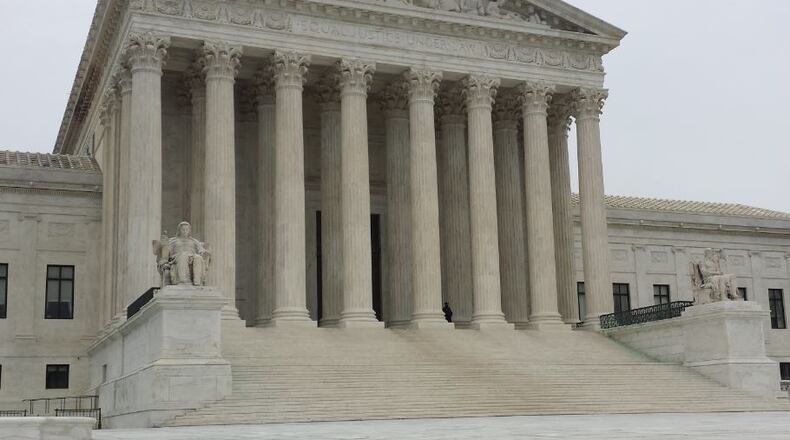The White House on Sunday ruled out the possibility of a quick recess appointment this week by President Obama, which could have immediately tipped the ideological balance of the U.S. Supreme Court, as both parties sparred over a replacement for Justice Antonin Scalia, who died unexpectedly on Sunday at age 79.
"Given that the Senate is currently in recess, we don’t expect the president to rush this through this week, but instead will do so in due time once the Senate returns from their recess," said White House spokesman Eric Schultz.
Schultz was referring to the timing of Scalia's death, which coincided with a recess in Congress, and left open the possibility of a temporary recess appointment to the U.S. Supreme Court.
That has not happened since the 1950's - when President Eisenhower actually put three justices on the Supreme Court by going around the U.S. Senate.
Credit: Jamie Dupree
Credit: Jamie Dupree
But even though Congress is on recess right now, it is only a 9 day break - one day less than what the U.S. Supreme Court ruled in 2014 would allow a President to make a recess appointment.
Credit: Jamie Dupree
Credit: Jamie Dupree
That unanimous decision in NLRB v. Noel Canning found that President Obama had overstepped his authority in making several recess appointments while the Senate was not actually on break.
You can read that ruling here.
While the White House ruled out the idea of a recess appointment right now, the Obama Administration again ratcheted up the argument that Republicans should just vote on President Obama's nominee, once the President makes his pick.
"At that point, we expect the Senate to consider that nominee, consistent with their responsibilities laid out in the United States Constitution," said Schultz, the White House spokesman.
Top Republicans though are standing by their pledge to not even bring a nominee up for a vote, arguing the next election should decide who fills that open seat.
Credit: Jamie Dupree
Credit: Jamie Dupree
Meanwhile, the two parties spent much of the weekend digging up old quotes made by members the other party about judicial nominations, which were then put to use in the debate over how to deal with the Supreme Court vacancy.
For example:
+ Democrats cited how Republicans demanded action on the nomination by Ronald Reagan of Anthony Kennedy, who was approved in a presidential election year in 1988.
+ Republicans then dug up a speech by Sen. Charles Schumer (D-NY) from the summer of 2007, in which he advocated blocking all Supreme Court choices by President George W. Bush during his final 18 months in office.
In other words, your reaction as a Senator often simply is dictated by the political situation you find yourself in, as well as whether your party is in power in the White House or not.
About the Author





